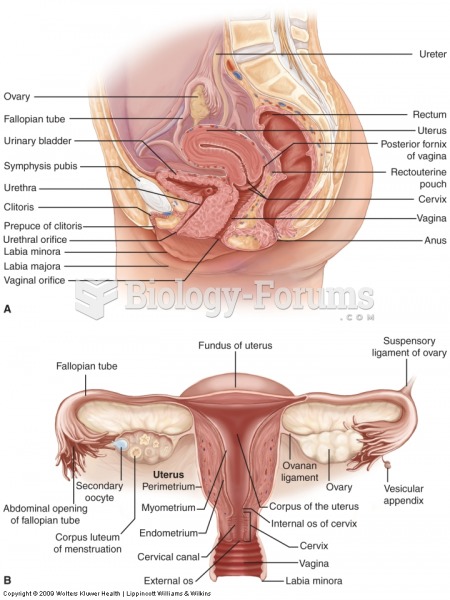|
|
|
Did you know?
If all the neurons in the human body were lined up, they would stretch more than 600 miles.
Did you know?
Women are 50% to 75% more likely than men to experience an adverse drug reaction.
Did you know?
Immunoglobulin injections may give short-term protection against, or reduce severity of certain diseases. They help people who have an inherited problem making their own antibodies, or those who are having certain types of cancer treatments.
Did you know?
Human kidneys will clean about 1 million gallons of blood in an average lifetime.
Did you know?
The average office desk has 400 times more bacteria on it than a toilet.







